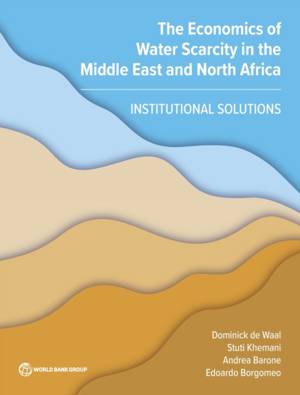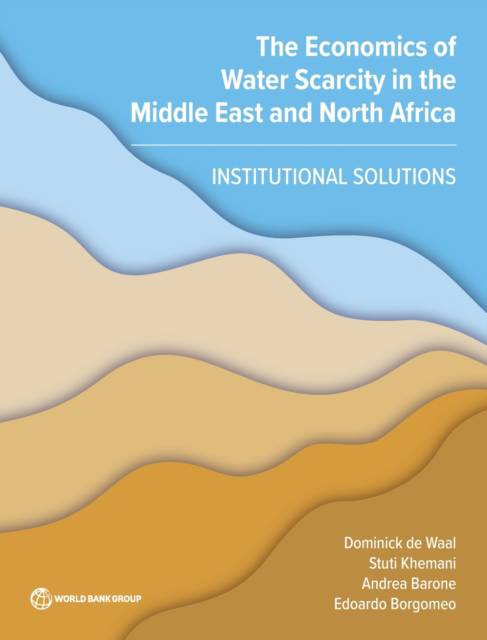
En raison d'une grêve chez bpost, votre commande pourrait être retardée. Vous avez besoin d’un livre rapidement ? Nos magasins vous accueillent à bras ouverts !
- Retrait gratuit dans votre magasin Club
- 7.000.000 titres dans notre catalogue
- Payer en toute sécurité
- Toujours un magasin près de chez vous
En raison de la grêve chez bpost, votre commande pourrait être retardée. Vous avez besoin d’un livre rapidement ? Nos magasins vous accueillent à bras ouverts !
- Retrait gratuit dans votre magasin Club
- 7.000.0000 titres dans notre catalogue
- Payer en toute sécurité
- Toujours un magasin près de chez vous
The Economics of Water Scarcity in the Middle East and North Africa
Institutional Solutions
Dominick de Waal, Stuti Khemani, Andrea Barone
Livre broché | Anglais
56,45 €
+ 112 points
Description
Despite massive infrastructure investments, countries in the Middle East and North Africa (MENA) region continue to face unprecedented water scarcity due to climate change, population growth, and socioeconomic development. Current policy regimes for managing water across competing needs are primarily determined by state control of large infrastructure. Policy makers across the region understand the unsustainability of water allocations and that increasing investments in new infrastructure and technologies to increase water supply place a growing financial burden on governments. However, standard solutions for demand management-reallocating water to higher value uses, reducing waste, and increasing tariffs-pose difficult political dilemmas that, more often than not, are left unresolved. Without institutional reform, the region will likely remain in water distress even with increased financing for water sector infrastructure.The Economics of Water Scarcity in the Middle East and North Africa: Institutional Solutions confronts the persistence and severity of water scarcity in MENA. The report draws on the tools of public economics to address two crucial challenges facing states in MENA: lack of legitimacy and trust. Evidence from the World Values Survey shows that people in the region believe that a key role of government is to keep prices down and that governments are reluctant to raise tariffs because of the risk of widespread protests. Instead of avoiding the "politically sensitive+? issue of water scarcity, this report argues that reform leaders and their external partners can reform national water institutions and draw on local political contestation to establish a new social contract. The crisis and emotive power of water in the region can be used to bolster legitimacy and trust and build a sustainable, inclusive, thriving economy that is resilient to climate change.
Spécifications
Parties prenantes
- Auteur(s) :
- Editeur:
Contenu
- Nombre de pages :
- 150
- Langue:
- Anglais
Caractéristiques
- EAN:
- 9781464817397
- Date de parution :
- 18-05-23
- Format:
- Livre broché
- Format numérique:
- Trade paperback (VS)
- Dimensions :
- 203 mm x 267 mm
- Poids :
- 662 g

Les avis
Nous publions uniquement les avis qui respectent les conditions requises. Consultez nos conditions pour les avis.






